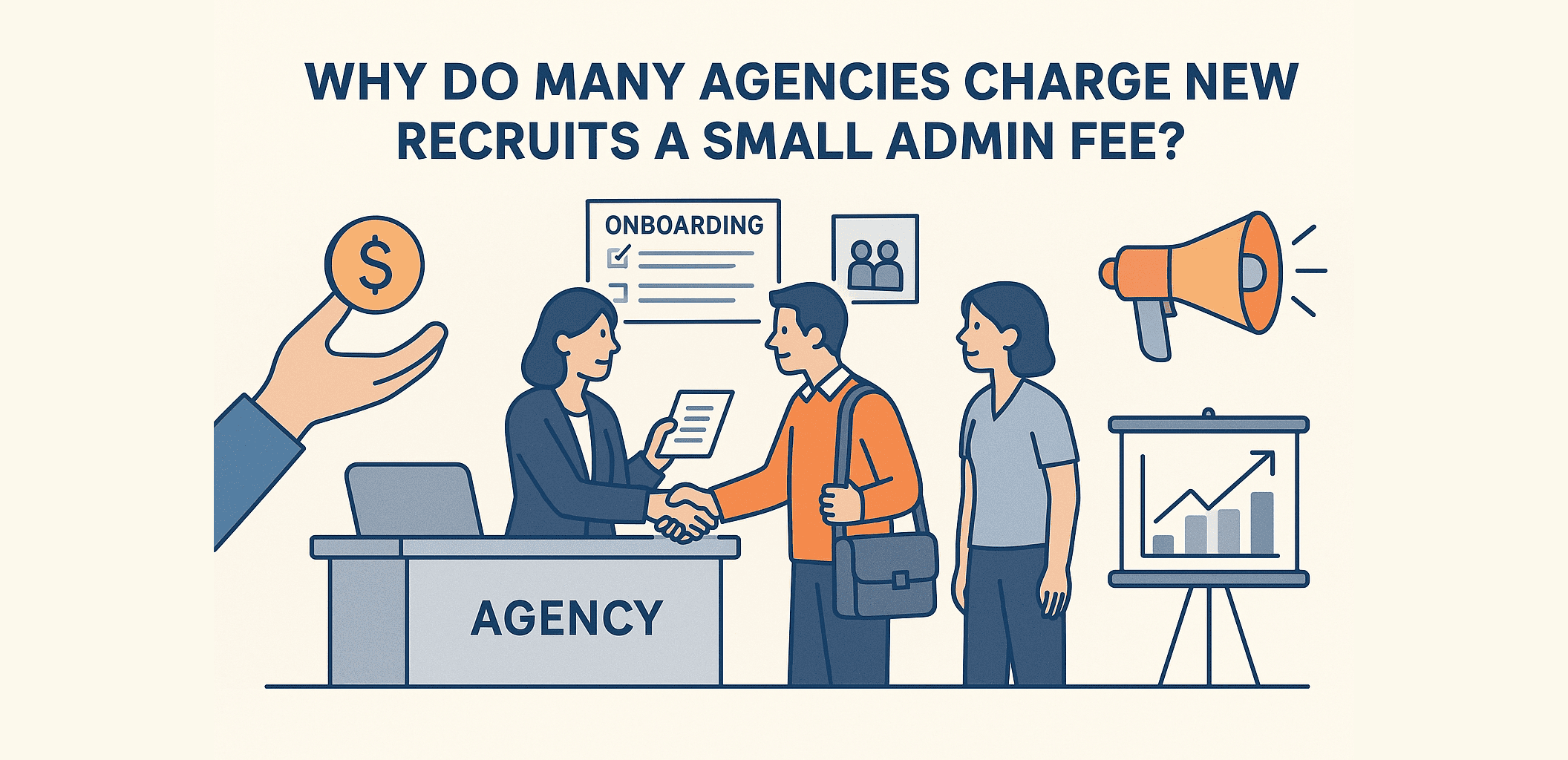Why Do Many Agencies Charge New Recruits a Small Admin Fee?

You’re excited to start your new career in real estate. You’ve found an agency you like, the team seems friendly, and the opportunities look endless.
Then you see it — a small admin fee.
Your first thought might be:
“Why should I pay to work?”
It’s a fair question. And the honest answer has less to do with profit — and more to do with commitment, cost, and filtering.
The Old Days: Free to Join, Free to Leave
In the early days of Malaysia’s real estate industry, agencies operated on a simple model: pure commission split.
There were no salaries, no EPF or SOCSO, and no guaranteed pay. Agents could join freely, and if they didn’t close deals, they simply left — no strings attached.
On the surface, this looked like a win-win. The agency carried no salary burden, and agents enjoyed flexibility.
But over time, principals realized a hard truth: “free” recruitment is never free.
The Hidden Cost Behind Every New Recruit
Even when agents are unpaid until they close deals, agencies still incur real onboarding costs — both in money and manpower.
Every new recruit typically involves:
- Recruitment Expenses – Job ads, boosted posts, and social media hiring campaigns.
- Admin Processing – Interviews, REN tag applications, and record updates.
- Training Time – Leaders or seniors investing hours in onboarding sessions.
- System Access – Allocating CRM accounts, WhatsApp groups, and shared tools.
- Marketing Support – Printing business cards, preparing name tags, and ad templates.
And nowadays, many agencies sweeten the deal further by including:
- Free advertisement budgets for first listings
- Business card printing packages
- Structured training programs or onboarding workshops
All of these come with a cost — even if the agent never closes a single deal.
So when a recruit joins and disappears after one week, the agency eats the loss.
The Harsh Reality: Most Recruits Don’t Perform
The statistics are sobering: only 10–20% of new recruits go on to close deals.
That means 8 out of 10 consume resources without producing results.
And without any barrier to entry, the ratio can be even worse — a sea of “ducks” who never take real action.
When joining is free, commitment is weak. People treat it like an experiment, not a career.
The Commitment Filter: Small Fee, Big Difference
That’s why many agencies today charge a small administrative fee, typically between RM50 and RM300.
Not as a profit center — but as a filter for seriousness.
That small fee helps the agency:
- Offset real onboarding costs (printing, training, ads)
- Filter out non-serious “try-and-see” joiners
- Create a sense of ownership and accountability
And it helps the agent too — it signals skin in the game.
Agencies that introduced a small commitment fee often see 10–20% of recruits performing actively. Without it, the rate is even lower.
The Psychology of Paying to Commit
There’s a reason why gyms charge registration fees, or why courses ask for deposits — people value what they pay for.
A small fee transforms mindset:
“I’ve paid for this, so I should show up.”
For real estate, that mental shift means attending training, taking initiative, and following through.
Don’t Overcharge — Keep It Accessible
The goal isn’t to make recruitment a revenue stream.
If the fee is too high, you’ll scare away good talent — especially new agents with limited funds.
The sweet spot is a token amount, enough to build commitment but not enough to become a barrier.
Think of it as a handshake deal:
“We’ll invest in you — but you must also invest in yourself.”
Final Thought: Free Isn’t Always Fair
A “free-to-join” model sounds generous, but it attracts casuals who never act.
A small admin fee, on the other hand, sets the tone from day one:
“This is a profession, not a pastime.”
For agencies, it reduces wasted effort.
For agents, it’s a symbolic first step — not payment for employment, but proof of intent.
In real estate, success starts not with zero cost — but with real commitment.











































































































